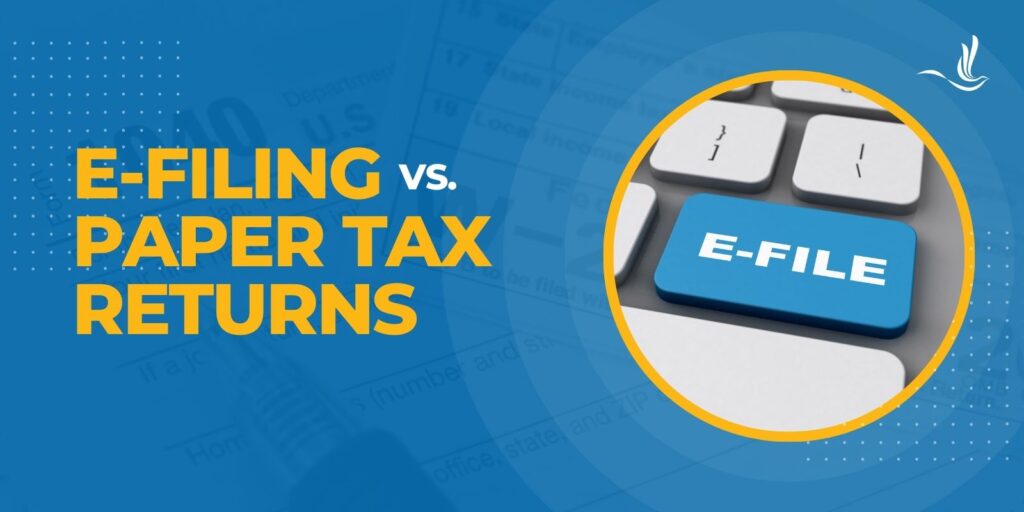
As tax season approaches, individuals and businesses face the crucial decision of how to file their tax returns. Traditionally, paper filing has been the go-to method, but with technological advancements, e-filing has gained popularity. In fact, only about 10% of Americans still file a paper return. This article explores the key differences between paper tax return filing and e-filing, weighing the pros and cons of each method to help taxpayers make an informed decision.
Convenience and Speed
Filing taxes on paper involves manually completing the necessary forms, gathering supporting documents, and sending the package via mail to the appropriate tax agency. This process is time-consuming and may result in longer processing times.
E-filing, on the other hand, allows taxpayers to submit their returns electronically through secure online platforms. This method is known for its efficiency, providing instant confirmation of receipt and faster processing times. Additionally, e-filing eliminates the risk of postal delays or lost documents.
Accuracy and Error Reduction
Manual data entry on paper forms increases the likelihood of errors due to illegible handwriting or miscalculations. Such mistakes can lead to delays in processing and potential penalties.
E-filing minimizes the risk of errors by using automated software that performs calculations and checks for common mistakes. The built-in validation tools help ensure that the information provided is accurate, reducing the chances of errors that could trigger audits or delays.
Cost Considerations
If you prepare your own taxes, you’ll save on the cost of tax preparation fees. If not, your tax preparer will likely not be able to file a paper return on your behalf. Tax preparers who expect to file 11 or more returns during the year must e-file with some exceptions. Filing on paper also incurs the cost of postage and printing if you do not have your own printer at home.
E-filing is generally more cost-effective as it eliminates the need for postage and printed forms. Additionally, many tax software providers offer free or affordable e-filing options for simpler tax returns, making it an attractive choice for those seeking budget-friendly solutions. However, if your tax situation is complex, the software could become more expensive, even if you are preparing your taxes on your own.
Security and Privacy
Sending sensitive financial information through the mail raises concerns about the security and privacy of personal data. There is a risk of documents being lost or intercepted during transit.
E-filing platforms use advanced encryption and security measures to protect sensitive information. While no system is entirely immune to cyber threats, e-filing is generally considered a secure method, and the electronic trail provides added accountability.
Accessibility and Environment
Some individuals may prefer paper filing for its tactile nature, allowing them to physically organize and store their tax documents. However, this method contributes to paper waste and is less environmentally friendly. It also requires searching for all the tax forms required to complete your return.
E-filing is more environmentally sustainable, as it reduces the need for paper and mailing resources. Electronic records are easier to organize and access, contributing to a more streamlined approach to financial documentation. Finally, e-filing platforms will automatically procure the necessary tax forms for your return based on a series of questions it asks you when starting the preparation process.
Tax Help for 2024 Tax Season
Ultimately, the choice between paper filing and e-filing depends on individual preferences, priorities, and the complexity of the tax situation. While some may appreciate the traditional approach of paper filing, many are embracing the efficiency, accuracy, and convenience offered by e-filing. As technology continues to advance, e-filing is likely to continue to be the predominant method for filing tax returns, offering a seamless and secure experience for taxpayers. Optima Tax Relief is the nation’s leading tax resolution firm with over $1 billion in resolved tax liabilities.
If You Need Tax Help, Contact Us Today for a Free Consultation